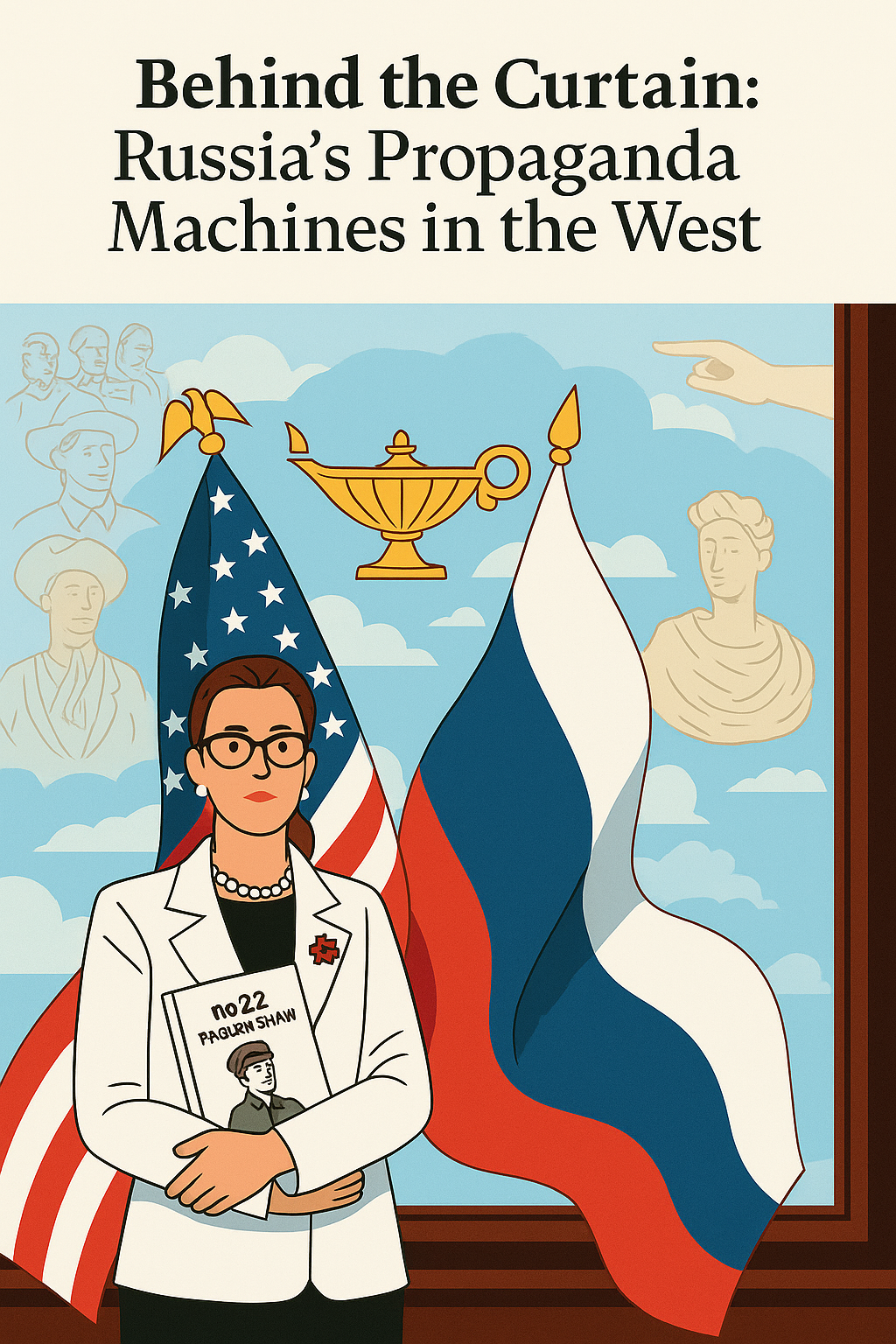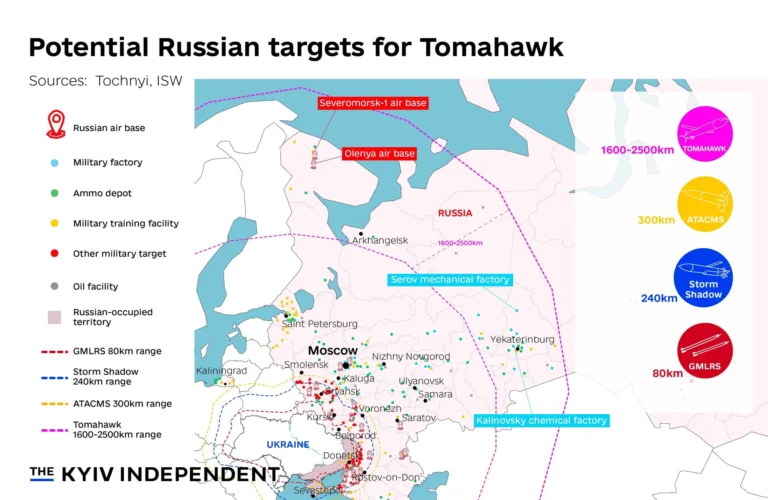
Imagine this: A Russian activist stands in the heart of Washington D.C., reading poetry that glorifies the war against Ukraine. The book features a giant “Z”, the now-infamous pro-war symbol adopted by the Kremlin, proudly embedded in the title.
The audience? Not some underground club. It was recorded and aired from the Russian Cultural Center, a taxpayer-funded building, right in the capital of the United States. The event was published by Russian state TV. The poet whose words she read is a war correspondent, and the anthology was reportedly created at the request of Margarita Simonyan, one of the Kremlin’s most aggressive propagandists.
If this sounds like satire, it’s not. It’s real. And it’s part of a much larger problem.
What is the “Russian House”?
Officially, “Russian House” centers, also known as Russian Centers for Science and Culture, exist to promote cultural exchange: language classes, scholarships, concerts, and art. In practice, they’re propaganda hubs and soft-power weapons, operated globally under the direction of Rossotrudnichestvo, the Kremlin’s international influence agency.
They operate in over 70 countries, including nearly every major EU capital. And yes, they still function in the U.S.
They are the Kremlin’s cultural Trojan Horses.
The Hidden Hand of the Kremlin
Since the full-scale invasion of Ukraine in 2022, Russia’s soft power efforts have come under increased scrutiny. The EU sanctioned Rossotrudnichestvo in 2022, identifying it as a conduit for Russian disinformation, hybrid operations, and state propaganda.
You’d think this would cripple the Russian Houses. It didn’t.
Why? Because they exploit legal gray zones. Most aren’t even formally registered as local organizations. Instead, they’re run through Russian embassies. Their directors, often undercover agents or career propagandists, are given diplomatic status. That grants them immunity from prosecution, even when local law enforcement tries to investigate.
In Berlin, for example, authorities launched a criminal probe into the Russian House’s financial dealings. But the investigation into its director collapsed because of his diplomatic cover. Similar immunity has protected Russian House personnel in Moldova, Washington, and other locations.
The result? These centers continue to host events, receive funding, and push Kremlin messaging, with minimal accountability.
How Do They Keep Operating?
It’s a mix of loopholes and political cowardice.
In Moldova, where Russian drone debris has literally landed on Moldovan soil, the government announced it would shut down the Russian Cultural Center in Chisinau. That was in February. As of today, it’s still open, holding events, visiting schools, and telling children that Russia is Moldova’s “true friend.”
The intergovernmental agreement with Russia that allows the center to operate is still technically in place, even though a draft law to terminate it was written months ago. Why the delay? According to critics, it’s fear. Pro-Russian voters remain a significant political bloc ahead of the 2025 elections. So Parliament stalls.
Meanwhile, the propaganda machine rolls on.
In Germany, authorities worry that shutting down Russian House in Berlin might provoke the Kremlin to retaliate, for example, by expelling staff from the German Goethe Institute in Moscow. So instead of decisive action, the German government continues to “investigate.”
And in the United States? The Russian House in Washington simply reopened in late 2022 after a brief pause, as if nothing had happened. Since then, it’s hosted events celebrating the illegal annexation of Crimea. Twice.
The Espionage Connection
This isn’t just about soft power. It’s also about intelligence.
In 2018, U.S. authorities expelled Oleg Zhiganov, then director of the Russian Cultural Center in D.C., identifying him as an intelligence officer operating under diplomatic cover. His predecessor, Yury Zaytsev, was also investigated by the FBI for compiling personal dossiers on Americans involved in Russian exchange programs.
Zaytsev later resurfaced in Vienna, again as head of a Russian House.
In Denmark, a researcher affiliated with Russian House was sentenced to prison for passing classified energy-sector information to Russian intelligence. The Berlin director, Pavel Izvolsky, has been linked to a Russian military academy known for training GRU and SVR operatives.
Let that sink in: A publicly funded cultural initiative in your city might just be run by a foreign spy. And yet, they’re protected by diplomatic immunity.
When Countries Fought Back
Some governments have refused to play nice.
Denmark expelled over 20 embassy staff, forcing the Russian House in Copenhagen to shut down. Romania ordered the center in Bucharest to close within six months and expelled 40 Russian diplomats. Slovenia, Croatia, the UK, and Azerbaijan also took decisive action. In some cases, without invoking EU sanctions, using creative legal angles instead.
In Azerbaijan, authorities used the fact that the Russian House wasn’t legally registered to shut it down and reclaim the property.
But the United States, despite knowing the risks, despite proven espionage, despite public evidence of pro-war activity, has done nothing. The Russian House in D.C. continues to operate as a propaganda and networking hub, cozying up to academics, nonprofits, and American cultural institutions.
Its defenders claim it’s about “dialogue.” But dialogue dies when one party brings tanks and lies to the table.
Why This Matters
We live in a world where ideas can be weaponized. Propaganda isn’t just a nuisance, it’s a battlefield. And when states like Russia are allowed to operate cultural fronts under the guise of friendship and “exchange,” they gain soft access to hearts, minds, and institutions.
It’s no accident that these centers often target youth programs, universities, NGOs, and diaspora communities. It’s calculated. And it’s working.
The longer the Russian Houses stay open, the longer the Kremlin keeps its voice alive, even in countries that publicly support Ukraine.
If you found this breakdown helpful, consider supporting my work here on Buy Me A Coffee. Your support helps me research, write, and share these underreported stories. I don’t take Kremlin propaganda lightly and you shouldn’t either.
👉 Let’s keep calling it out. One piece at a time.






